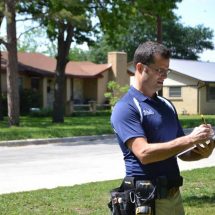When an unexpected event, such as a natural disaster or accident, occurs, the financial aftermath can be daunting. This is where insurance comes into play, providing individuals and businesses with a safety net to recover from losses. One key player in the insurance industry is the insurance adjuster. But what is an independent insurance adjuster and how do they differ from other types of adjusters?
Understanding the Basics of Insurance Adjusters:
An insurance adjuster is a licensed professional who works on behalf of insurance companies, policyholders, or third-party administrators to assess and determine the value of insurance claims. They act as a mediator between the insured party and the insurance company, ensuring a fair and accurate resolution.
An adjuster’s primary responsibility is to assess the damage, investigate the circumstances surrounding the loss, and determine the appropriate amount of compensation based on the terms of the insurance policy. If you’d like to take a deeper dive on what an adjuster does, you should check out our blog.
Types of Insurance Adjusters:
There are a few different types of insurance adjusters, or insurance adjusting jobs: independent adjusters, staff adjusters, and public adjusters. This article focuses on independent adjusters.
The term “independent” refers to insurance adjusters who work independently or on a contract basis rather than being directly employed by a specific insurance company. They are typically employed by Insurance Adjusting Firms – not insurance carriers. These firms are hired by insurance companies to handle excess claims. A single firm can be hired by multiple insurance companies, and an independent adjuster can be contracted with multiple firms.
For example, independent adjuster Nicole is contracted by three different firms, and each firm is contracted by two different insurance companies. So one day she could be working on a claim for Allstate through one firm and the next day working on a claim for State Farm through a different firm. So, while Nicole is acting on behalf of, and representing the insurance carrier, she is contracted and employed independently by the adjusting firm.
If you’d like to learn more about Independent Adjusting Firms (also known as IA Firms), check out our blog!
Independent adjusters will be contracted by these IA Firms and are usually paid based on the number of claims and the size of claims handled. These adjusters work all types of claims: home, auto, agricultural, flood, cyber, and more.

Staff adjusters, on the other hand, are hired directly by and work for one insurance company. Their employment is what many would call ‘more traditional.’ They earn a set salary and receive benefits like time off and insurance coverage.
Since they can determine how much they make by how many claims they work, independent adjusters have a higher earning potential. Many will travel to disaster areas on what is called ‘a deployment’ and work long hours 7 days a week for a certain period of time. They are flexible to take on the contracts they want, from employers they trust, and many will take time off after long deployments. The work is not as steady or reliable as that of staff adjusters, but the earning potential is worth it to independent adjusters.
As opposed to staff and independent adjusters, public adjusters are hired by and represent individuals. Their earnings come from a portion of the claim settlement. If you want to learn more about this line of work, check out our Independent vs. Public Adjuster blog.
Getting an Insurance Adjuster License
The process to become an independent or staff adjuster is basically the same and AdjusterPro courses do work for both career paths. If you’re interested in becoming an insurance adjuster, join our Introductory Webinar Course or read our 5 Steps Blog. You can also contact us and we’d be happy to answer any questions you have about the career or the licensing process.



